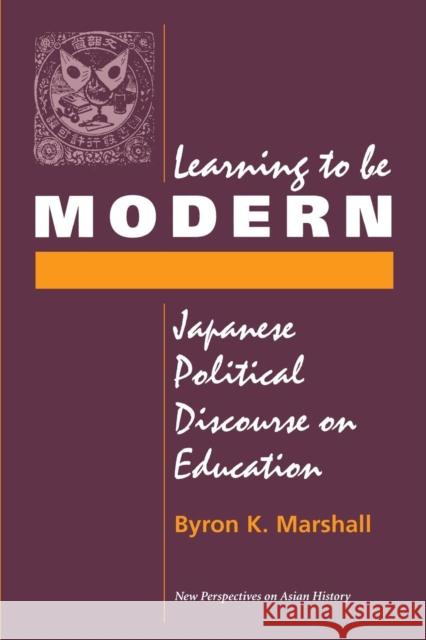Learning To Be Modern : Japanese Political Discourse On Education » książka
Learning To Be Modern : Japanese Political Discourse On Education
ISBN-13: 9780813318929 / Angielski / Miękka / 1995 / 340 str.
Learning To Be Modern : Japanese Political Discourse On Education
ISBN-13: 9780813318929 / Angielski / Miękka / 1995 / 340 str.
(netto: 254,93 VAT: 5%)
Najniższa cena z 30 dni: 246,78
ok. 16-18 dni roboczych.
Darmowa dostawa!
In the increasingly global economy, commentators often cite education as a key source of competitive advantage for nations locked in economic contention on the world stage. Byron Marshall examines the evolution of Japanese schools over the past 120 years. Emphasizing the political discourse and conflict that have surrounded Japanese education, the author focuses on the three main issues of central versus local control, elitism versus equality, and nationalism versus universalism. The prewar education system in Japan was formulated in the 1870s and modeled after the Western system of public education. After World War II, the American Occupation authorities attempted to reform this system further, but how much discontinuity with the past was produced by the postwar reforms is still an open question.Of course, the dilemmas facing Japanese schools are endemic to all modern school systems, and Marshall's broad historical survey provides a valuable case study of Japanese attempts to strike a balance between equality and excellence, individual creativity and team cooperation, standardization and innovation, and internationalism and cultural identity. The book thus provides a valuable historical perspective on contemporary American issues of political correctness such as gender and ethnicity.As we head toward the Pacific Century, this book gives readers the background and insight necessary to make informed judgments about the relative strength of Japanese education and the merits of various school reforms."











